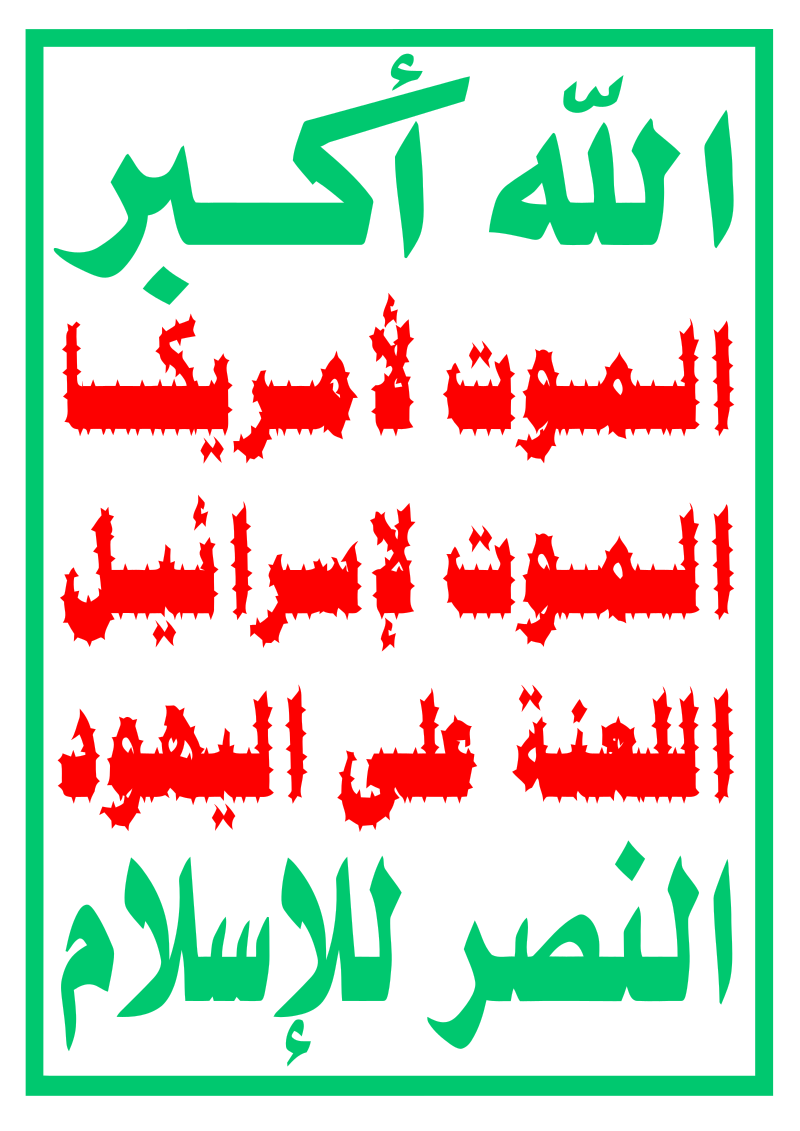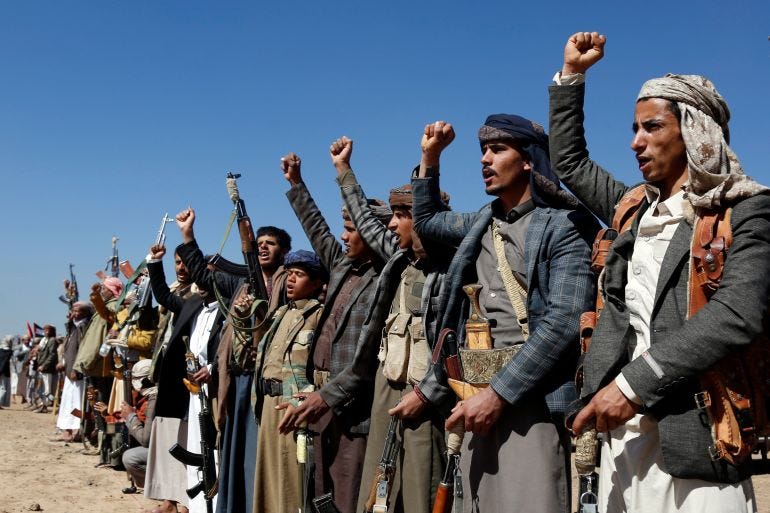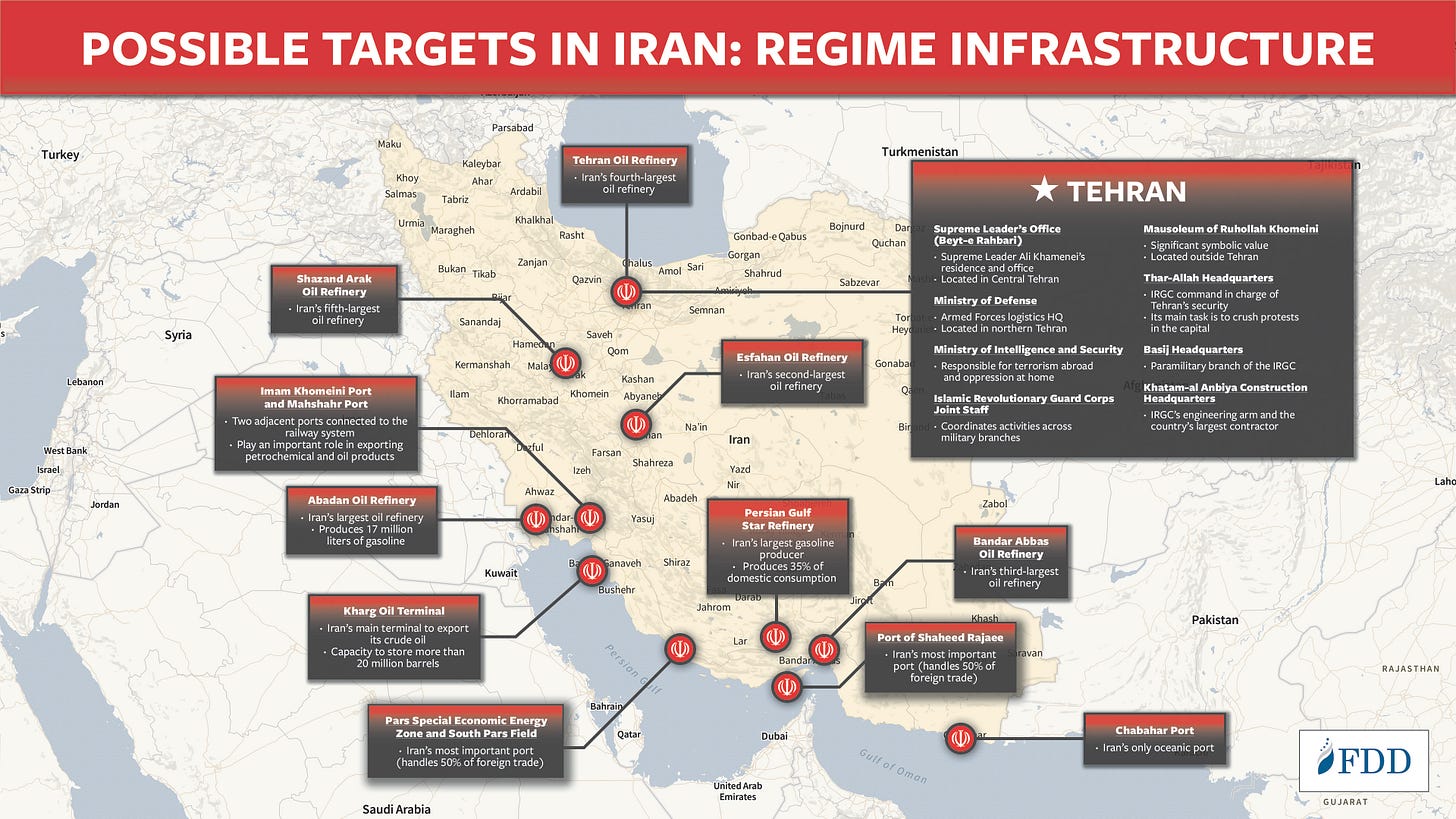Why the Houthis Won’t Stop—and What Israel Must Do About It
Israel’s enemies are the gift that never stops giving—offering endless displays of malice and barbarism. After the disgraceful ceasefire with Lebanon, Israel experienced a fleeting moment of relative quiet—fewer air-raid sirens and fewer families rushing to bomb shelters. But into this brief calm stepped the Yemeni Houthi group, an arm of Iran’s proxy network. Armed with long-range missiles, the Houthis have made it their mission to jolt Israelis awake in the dead of night, launching missiles timed perfectly to strike fear and disrupt lives at 2 a.m.
Who are the Houthis?
The Houthis, formally known as Ansar Allah, are a Shia Islamist political and militant group originating from northern Yemen with deep ties to Iran. Emerging in the 1990s as a Zaidi Shia revivalist movement, they evolved into a dominant political and military force after seizing Yemen’s capital, Sana’a, in 2014. Their official slogan, which appears on their logo, is a chilling rallying cry: “Death to America, Death to Israel, Curse on the Jews, Victory to Islam.” This motto reflects the group's core anti-Semitic and anti-western ideology, aligning closely with the ambitions of the Islamic Republic of Iran’s ideology.

Unlike Hezbollah and Hamas, who share a profound hatred for the West but attempt to cloak it under political posturing, the Houthis make no such effort. Their unabashed hatred of the West is literally embedded in their flag. Since the early months of the October 7th war, the Houthis have actively joined the Palestinian offensive by launching drones and missiles at Israel. They’ve also escalated international tensions by raiding ships in the Bab-el-Mandeb Strait, causing billions of dollars in damages to global trade and blockading Israel’s southern port of Eilat. In response, the U.S. and U.K. have formed a coalition to counter these actions, though so far, their efforts have failed to neutralise the Houthis effectively.
The Houthis are primitive savages who owe their very existence to Iranian support and the smuggling operations they conduct through their port at Al-Houdeida. Their survival is not a sign of their strength but rather a glaring indictment of the West’s moral cowardice and failure to stand up to evil.
The fact that this group, openly sworn to fight the West to the death, has not been eliminated within days is a stark reminder of the West’s spinelessness to take decisive action against those who openly declare war on its values and its very existence.
The Yemeni Front

Since the start of the war, Israel has largely refrained from significant retaliation against Houthi attacks, as these strikes caused minimal damage and no casualties. American pressure on Israel also heavily influenced this restraint to avoid escalating the conflict further. However, this policy shifted dramatically after a Houthi drone managed to penetrate Israel’s air defences, killing a civilian in Tel Aviv. This marked a turning point, leading to an unprecedented Israeli airstrike on the Al-Houdeida port on July 20th. The attack, executed at a distance of over 1,800 kilometres, was one of the longest-range operations ever conducted by the Israeli Air Force. The strike targeted the heart of the Houthis’ smuggling operations, signalling that Israel would no longer tolerate threats from even the most distant adversaries, regardless of external diplomatic pressures.
Since that historic airstrike, Houthi attacks on Israel have only intensified. While there have been no further fatalities, a few dozen Israelis have unfortunately been injured in subsequent strikes. In response, Israel conducted two additional airstrikes: one on September 29 and another on December 19. Despite these efforts, the attacks have proven ineffective in eliminating the Houthi threat, which continues to pose a persistent challenge to the Israeli’s sleep.
So far, the damage inflicted by Israel on the Houthis far outweighs the impact the Houthis have had on Israelis. Despite their intensified attacks, the Houthis’ actions have amounted to little more than a few disturbed nights and a handful of injuries. In contrast, Israel’s airstrikes have not only disrupted Houthi smuggling operations but also showcased the Israeli Air Force’s ability to conduct precision strikes over vast distances—well beyond 1,800 kilometres. This serves as a strategic demonstration of Israel's capability to target critical infrastructure, including Iranian oil facilities and nuclear sites, signalling its readiness to address broader regional threats if necessary.
Nevertheless, the fact that the Houthis have been able to disrupt global trade and launch dangerous projectiles at Israeli civilians for over a year underscores a troubling moral weakness. Granted, Israel’s resources are finite, and striking Yemen poses logistical challenges, particularly with more pressing fronts such as Iran, Gaza, the West Bank, and Lebanon. However, allowing such provocations to persist sends a dangerous message of tolerating aggression. Israel should adopt a policy of responding to threats with overwhelming, disproportionate force. For instance, instead of merely neutralising the Al-Houdeida port, Israel should have obliterated it entirely.
The fact that Israel has had to strike the same port three times is a sign that not enough is being done. A dramatic, decisive operation could have sent a far clearer message to its enemies. In the recent strike, Israel attacked the Sana’a International Airport, but it seems that the attack was minimal, making it possible for the Houthis to reopen the airport within days.
What Has to be Done
The Houthis are not an isolated threat but part of a much larger, more dangerous network orchestrated by the Islamic Republic of Iran. Their missiles and drones, their smuggling operations, and even their Islamist ideology are all powered by Iranian support. Iran’s fingerprints are evident not only in Yemen but across the region—in Lebanon through Hezbollah, in Gaza through Hamas, and in its relentless push for nuclear capability. The Houthi attacks are a symptom of a far greater disease: Iran’s ambition to conquer the Middle East and eliminate Israel’s existence.
Without addressing the root of the problem—Iran itself—neutralising the Houthis or any other Iranian proxy will always remain a temporary solution. Iran represents the single greatest existential threat to Israel and the primary obstacle to peace in the Middle East. If Israel is to fulfil its moral obligation to protect its citizens, it must strike Iran decisively—crippling its nuclear programme and, ideally, removing the evil mullah regime. Such action would not only safeguard Israel’s existence but also bring justice to the Iranian people and provide peace of mind to Israelis.
Furthermore, unless Israel conducts a truly decisive and dramatic strike in Yemen, the Houthis will continue launching missiles and drones toward Tel Aviv. Ultimately, the only way to neutralise the Houthi threat, the Hezbollah threat, and most other regional dangers—aside from perhaps Hamas—is to eliminate the Ayatollah regime in Iran. Israel’s moral imperative is obvious: it must act as soon as possible to secure its future and uphold justice.
Thank you for reading Philosophy: I Need It. If you enjoyed it and want to see more content, consider supporting me by clicking the button below. Every dollar counts.



